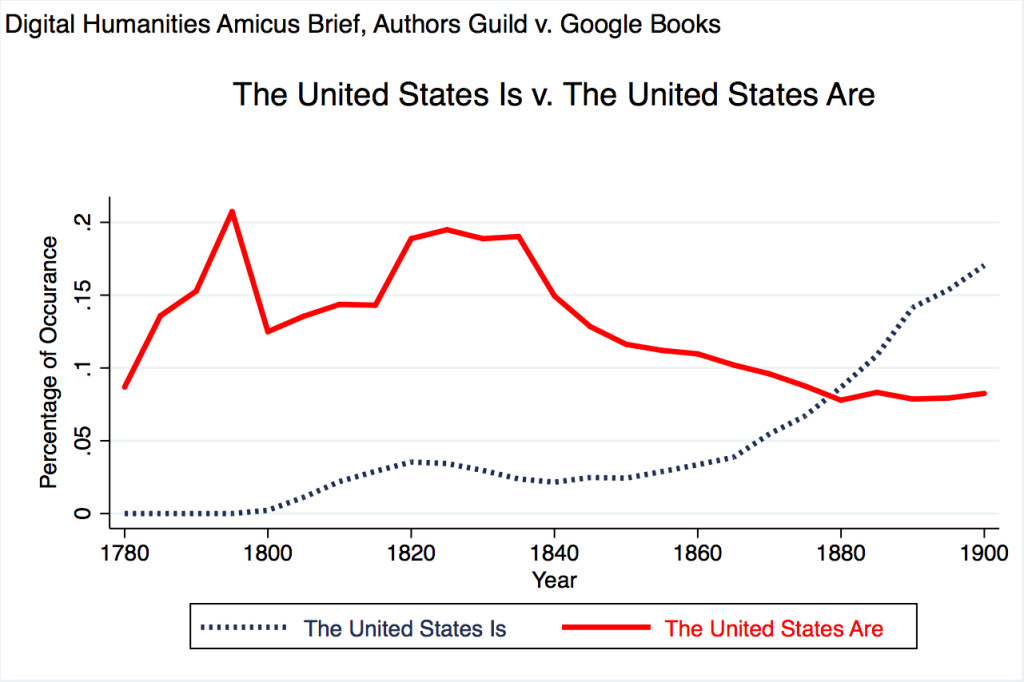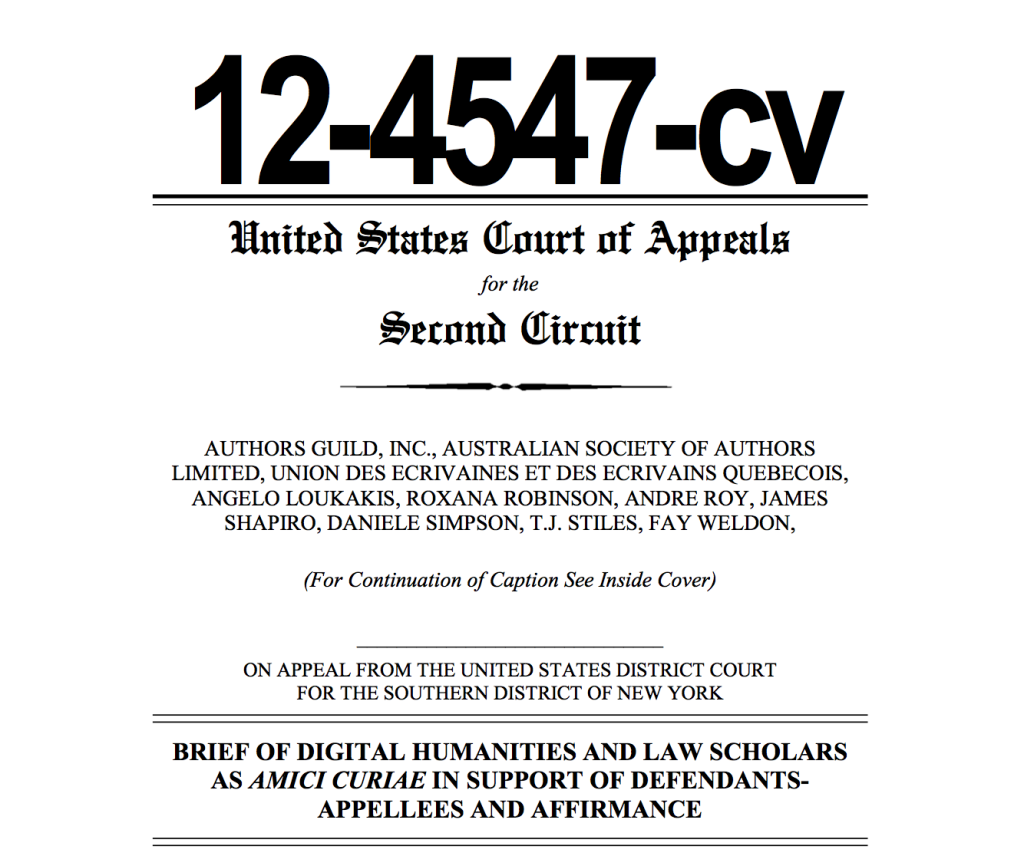Introduction and Necessary Disclaimer
This is the first in a series of posts concerning the Authors Guild v. Hathitrust case. Most of the posts will be commentary on the Authors Guild Appeal Brief (February 25, 2013). Although I am one of the authors of the Digital Humanities and Law Scholars Amicus Brief, the views expressed on this site are purely my own. My comments on the Authors Guild Appeal Brief will not be comprehensive, rather, my aim is to review the aspects of the brief that I found interesting.
Authors Guild v. Hathitrust – Essential Background
Chances are that if you are reading this blog, you are well aware that Google has been mired in copyright litigation regarding its library digitization project. Google was sued by the Authors Guild (among others) in a class action on behalf of all authors in 2005. A controversial settlement of that class action proposed in 2008 generated a maelstrom of objections. The settlement was revised in 2009, but ultimately rejected by Judge Deny Chin in the Southern District of New York in March 2011. Authors Guild v. Google is ongoing (the class action certification is being appealed by Google, if Google loses its appeal that case goes back to Judge Chin in the Southern District of New York).
In September 2011, the Authors Guild (among others) filed claims for copyright infringement against the universities of Michigan, California, Wisconsin, Indiana and Cornell University for participating in the Google Book project. The Guild’s complaint with respect to the universities is, first, that they allowed Google to digitize their library collections, second, that the universities accepted corresponding digital files from Google and have consolidated those files into a shared digital repository known as the HathiTust digital library, and third that the universities’ proposed orphan works project (OWP) amounts to copyright infringement.
This is speculation on my part, but the Authors Guild may have been banking on a favorable ruling from Judge Chin being handed down before their separate case against the universities went to judgment. If so, they miscalculated. (If not, I honestly can’t understand why they did not drop the suit against the HathiTrust – it is usually not a great idea to run the same legal argument against more sympathetic defendants when you have a choice. That said, I am sure that the plaintiffs were well advised and had sound reasons for their tactics – it is just had to see from the outside what those reasons might have been.)
Authors Guild v. Hathitrust moved fairly quickly to the summary judgment phase. Oral argument was held on August 6, 2012 in the United States District Court for the Southern District of New York in front of Judge Baer. On October 10, 2012, Judge Baer ruled against the plaintiffs and held that two key aspects of the library digitization program and the HathiTrust were “transformative” as that term of art is used in copyright cases and, on balance, fair use.
Judge Baer approved library digitization
- to fulfill the requirements of the Americans with Disabilities Act by making suitable versions of books available to the visually impaired and
- to engage in non-expressive uses such as text-mining and building a search engine.
The Judge also held that the domestic ‘Associational Plaintiffs’ (e.g. the Authors Guild and similar organizations) did not have statutory standing under the Copyright Act and that the claims involving the Universities’ OWP were not ripe for adjudication.
Understandably, the Authors Guild and their fellow plaintiffs are now pursuing their appeal rights. The next post takes a deeper look at the Authors Guild Appeal Brief.







